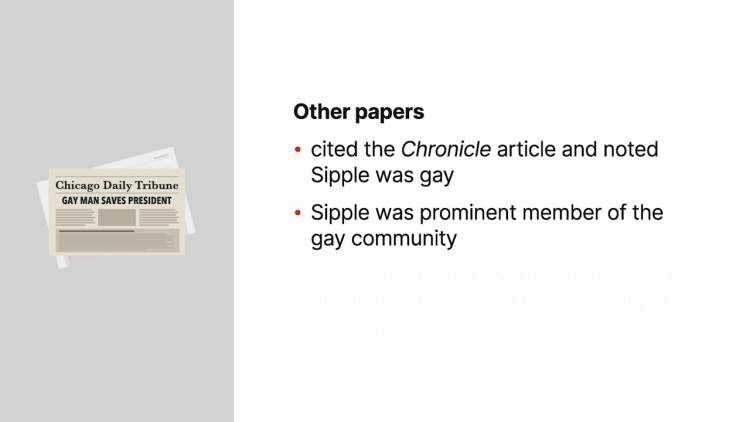Sipple v. Chronicle Publishing Co.
California Court of Appeal
201 Cal. Rptr. 665 (1984)

- Written by Sean Carroll, JD
Facts
Sara Jane Moore shot at President Gerald Ford, attempting to kill him. Oliver Sipple (plaintiff) grabbed Moore’s arm as she was firing the gun, potentially saving Ford’s life. Sipple was publicly regarded as a hero for his actions, which were publicized nationwide. The San Francisco Chronicle published an article about Sipple, which indicated that Sipple was gay. Subsequently, other newspapers across the country published articles making the same claim. Sipple brought suit against Chronicle Publishing Company and several other newspapers (defendants) for invasion of privacy. Specifically, Sipple claimed that the defendants tortiously publicized his homosexuality, a fact that, until the publications, was private. At trial, the newspapers presented evidence that Sipple’s homosexuality was known throughout San Francisco and other cities prior to publication. The newspapers claimed that Sipple often participated in activities within the gay community and frequented gay bars. Additionally, Sipple’s name and association with the gay community had previously been published in a number of gay publications. Sipple acknowledged that he would not hide his sexual orientation if someone asked him about it. The trial court granted the newspapers summary judgment. Sipple appealed.
Rule of Law
Issue
Holding and Reasoning (Caldecott, J.)
What to do next…
Here's why 909,000 law students have relied on our case briefs:
- Written by law professors and practitioners, not other law students. 47,100 briefs, keyed to 997 casebooks. Top-notch customer support.
- The right amount of information, includes the facts, issues, rule of law, holding and reasoning, and any concurrences and dissents.
- Access in your classes, works on your mobile and tablet. Massive library of related video lessons and high quality multiple-choice questions.
- Easy to use, uniform format for every case brief. Written in plain English, not in legalese. Our briefs summarize and simplify; they don’t just repeat the court’s language.





